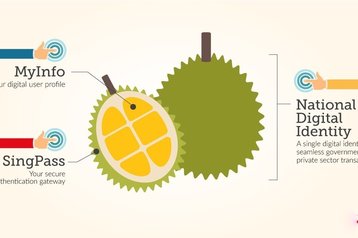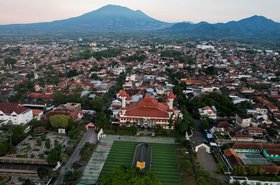Singapore government agency GovTech is turning to the cloud to support the country's digital identity system, due to be delivered next year.
The Singapore National Digital Identity (NDI) initiative is a mobile digital identity system designed to provide Singapore residents and businesses with secure and convenient digital transactions to both public sector and private organizations. The NDI will be enabled on multiple clouds, through the use of the Kubernetes architecture, and a Google service which provides multi-cloud management, a GovTech spokesman told a Google event in Singapore yesterday.
Going cloud-first
“We are moving the majority of the systems of our nation to the cloud, to take advantage of the visibility and resilience, and allow us to leverage industry innovation to build modern applications,” Kwok Quek Sin, a senior director at GovTech announced, in a keynote at Google Cloud Summit Singapore yesterday
GovTech plans is developing a hybrid, multi-cloud architecture, using cloud federation for heightened resilience, said Kwok. GovTech has started to build new applications, and shift the deployment of services to Kubernetes, so workloads can be deployed across multiple clouds without application changes.
According to Kwok, Google Cloud enables GovTech’s multi-cloud aims because it can be used with other clouds, including existing on-premises government data center deployments. This presumably makes use of Google Anthos, a multi-cloud management system released earlier this year, which is available on both Google Kubernetes Engine (GKE) and GKE On-Prem.
Using Anthos, organizations can manage multi-cloud workloads on GKE, GKE On-Prem, and even on rival clouds such as Amazon Web Services (AWS) or Microsoft Azure. During the keynote, Google demonstrated the ability to manage the same e-commerce shop three different environments: On-premises, on GCP and on AWS.
“Complexity is an enemy of security. The promise of a unified, hybrid, multi-cloud management tool cannot be wrong. And we look forward to realizing this benefit together in the future,” said Kwok.




